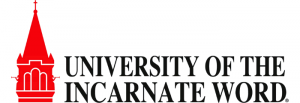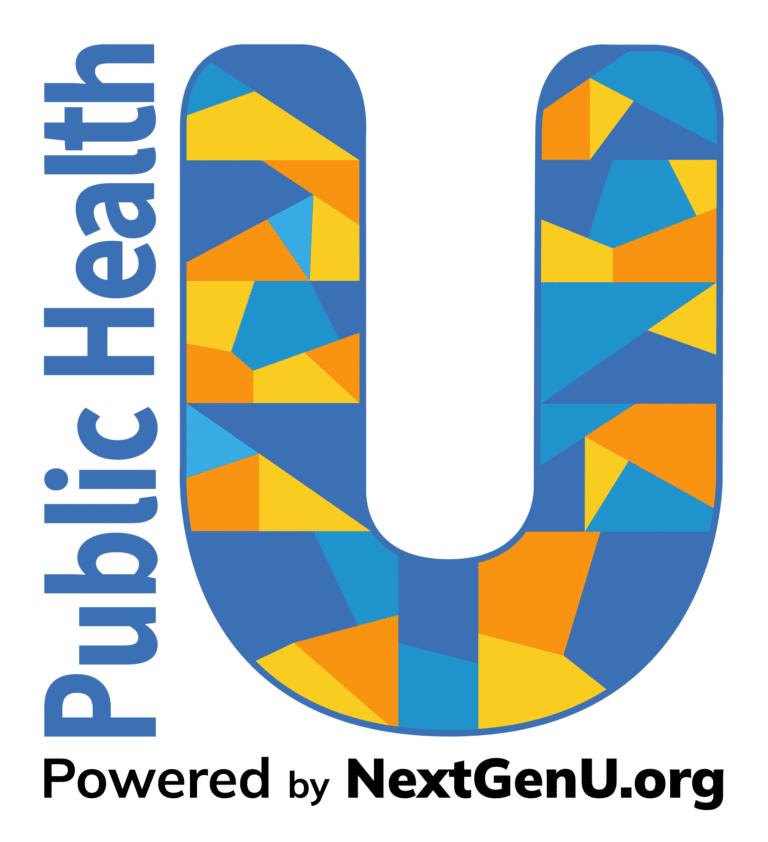Environmental Health
This course is a comprehensive introduction to environmental health concepts, including regulatory controls, and to pollutants’ sources, fates, and impacts in environmental media (air, water, food, and soil) and in occupational settings. Human hazard recognition, evaluation, and management are introduced in terms of toxicology, epidemiology, exposure assessment, prevention, risk assessment, and emergency response
This Environmental Health course was developed in partnership with the Association for Prevention Teaching and Research, the U.S. Centers for Disease Control and Prevention (CDC), and Peoples-uni. This course is co-sponsored by: the International Society of Doctors for the Environment, Physicians for Social Responsibility, and the University of the Incarnate Word. Like all NextGenU courses, it is competency-based, using competencies from the Association of Schools and Programs of Public Health. This course covers the CEPH-related competency “Advocate for political, social, or economic policies and programs that will improve health in diverse populations [D2:14].” This course uses learning resources from world-class academic and governmental organizations such as the International Labour Organization, the University of Washington, Yale School of Public Health, the World Health Organization, the U.S. CDC, and the U.S. National Institutes of Health. Our original course developer was Lindsay Galway, and our Advisory Group was: Ryan Allen, PhD; Kristian Dubrawski, PhD; Sylvia Struck, PhD; and Tim Takaro, MD, MPH, MSc. The course was redesigned by Kathleen Capone EdD, MS, RN, CN; Valeria Reynolds MD; Hugo Rojas MD, MSc; Pablo Baldiviezo MD, Juan Bravo MD, Sergio Arancibia MD and Madison Cox MSN, RN with the collaboration of Peoples-uni Subject Matter Experts Richard F. Heller, MB, BS, MD, FRCP, FFPH, FRACP, FAFPHM, and Magali Collonnaz, MD, MSc.



For a publication on this course’s efficacy, see “A Novel Integration of Online and Flipped Classroom Instructional Models in Public Health Higher Education,” (2014), BMC Medical Education, https://doi.org/10.1186/1472-6920-14-181; see also “Building Public Health Capacity through Online Global Learning,” (2018), Open Praxis, https://openpraxis.org/index.php/OpenPraxis/article/view/746/427; to see more research related to NextGenU.org’s educational model, have a look at NextGenU.org’s publication page.
There are 5 modules to complete, which provide
- our introduction to the study of environmental health;
- an overview of major environmental and occupational agents;
- an overview of environmental hazards, exposure assessment, toxicology, and risk management and communication;
- skills to develop an environmental and occupational risk assessment;
- skills to advocate for environmental health advocacy;
- an optional module about Disaster Planning and Management for students interested in taking the ABPM certification exam, and for other motivated learners.
The completion time for this course is estimated at 135 hours, 45 hours of didactics through narratives and curated resources, and 90 hours of work participating in activities and quizzes to assist the student in synthesis of the materials. This course is equivalent to 3 credit hours.
You’ll have the opportunity to connect with a mentor with professional health care training who has both a bachelor’s/college degree, and a Master of Public Health (MPH) or equivalent, to assist you as you engage in activities that are designed to fulfill the requirements of master’s-level competencies. We hope this is a wonderful learning experience for you, and the feedback you provide after completing the course will help us improve the course for future students.
The course requires the completion of all peer activities. At the end of each lesson, there is a practice quiz. At the end of the course, after you’ve completed each lesson, quiz, and activity, you’ll have access to a final exam, and a chance to evaluate this course. Once you’ve passed that last test, you will be able to download a certificate of completion from NextGenU.org and our course’s co-sponsoring organizations (listed above). We keep all of your personal information confidential, never sell any of your information, and only use anonymized data for research purposes, and we are also happy to report your testing information and share your work with anyone (your school, employer, etc.) at your request. We hope that you will find this a rewarding learning experience, and we count on your feedback to help us improve this training for future students.
Engaging with this Course
You may browse this course for free to learn for your personal enrichment; there are no requirements. To register in this course, it is required that learners have obtained a college-level/bachelor’s degree.
To obtain a certificate a learner must successfully complete
- all the reading requirements,
- all quizzes and pass with a 70% with unlimited attempts,
- the 6 peer activities,
- the final exam with a minimum of 70% and a maximum of 3 attempts, and
- the self and course evaluation forms.
Evaluation is comprised of the following components
- White Paper successful completion (10%),
- Peer/Mentor Activities successful completion (25%),
- Quiz completion with 70% or higher (15%) and,
- Final exam (50%).
To obtain credit
- complete all requirements listed above for the certificate;
- your learning institution or workplace should approve the partner-university-sponsored NextGenU.org course for educational credit, as they would for their learner taking a course anywhere.
NextGenU.org is happy to provide your institution with
- a link to and description of the course training, so they can see all its components, including the cosponsoring universities and other professional organization cosponsors;
- your grade on the final exam;
- your work products (e.g. peer and mentored activities), and any other required or optional shared materials that you produce and authorize to share with them;
- your evaluations — course, self, and peer assessments;
- a copy of your certificate of completion, with the co-sponsoring universities and other organizations listed.
We hope that you will find this a rewarding learning experience, and we count on your assessment and feedback to help us improve this training for future students.
To obtain a degree, NextGenU.org co-sponsors degree programs with institutional partners. To obtain a full degree co-sponsored with NextGenU.org, registrants must be enrolled in a degree program as a student of a NextGenU.org institutional partner. If you think that your institution might be interested in offering a degree with NextGenU.org contact us.
Next Steps
- Complete the registration form.
- Take the pre-test.
- Begin the course with Module 1: Introduction to environmental health. In each lesson, read the description, complete all required readings and any required activity, and take the corresponding quizzes.
Information for students enrolled in the former version of this course:
The previous version of the course is still available to you, and all of your work has been preserved. If you wish to continue in the old version of the course you can do so at this link. If you were just starting with the former version of the course, you may consider enrolling in the revised course by clicking here. Since all of the content in the revised version is new, all course participants who enroll in this version will need to complete all of the new activities, quizzes, and the new final to receive a certificate of completion.
